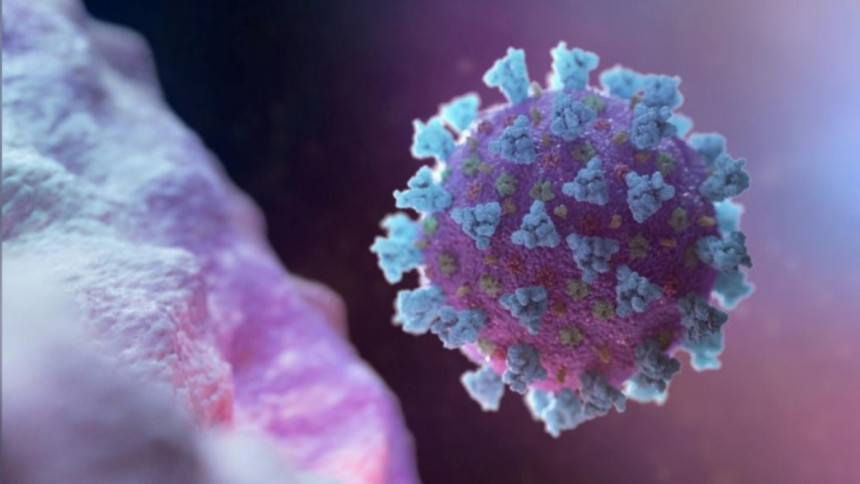Outbreak may prolong


The Covid-19 outbreak may prolong for the next several years as the country is not taking scientific measures to control it, said a public health expert.
Prof Mozaherul Huq, former regional advisor of WHO South East Asia region and founder of the Public Health Foundation of Bangladesh, made the observation yesterday following DGHS's daily coronavirus situation update.
Yesterday, 55 patients died of Covid-19 and 3,027 people were reported infected.
During the last three weeks, the percentage of total positive cases among those tested have remained almost static, slightly over 19 percent.
Reflecting on those numbers, Prof Mozaherul said countries that have brought down the transmission to zero have done so through proper scientific measures.
He gave the example of France, the country Bangladesh crossed yesterday in terms of confirmed positive cases, becoming the 17th worst-affected nation.
According to the World Health Organization (WHO) website, France reported no new cases in the last three days.
This success was possible by tackling the pandemic through "stringent programmes" -- rigorous tests, contract tracing, isolation and proper treatment of the infected patients, Prof Mozaherul said.
But such measures are absent in Bangladesh, he added.
He disagreed with a government health official's recent prediction that Covid-19 transmission might start to decrease by the end of July, if all controlling systems remain effective.
"He said 'if all controlling systems remain effective', but the question is: Is there such a system in the country?" Mozaherul questioned.
The public health expert also warned the government in March and April about the situation turning worse if rigorous measures are not taken.
Then government officials held that Covid-19 will not cause problems in the country as it did in Europe and America.
Government officials on the Covid-19 situation
On Sunday, ASM Alamgir, principal scientific officer of the Institute of Epidemiology, Disease Control and Research (IEDCR), told the media, "The transmission may decrease by the end of this month if all controlling systems remain effective."
He said they had closely observed the transmission trend after reopening [from June 1] and found the transmission rate stable during the previous two weeks.
"The reproduction rate of the virus, which is called R-naught, has come down below one in the last two weeks [and] it is a positive sign," Alamgir said.
However, he could not be reached for an explanation after repeated phone call attempts by this newspaper.
Similar predictions were made by him and Prof Abul Kalam Azad, Director General of Health Services (DGHS) on June 13 and June 16, respectively, about the virus's transmission coming down by June. None came true.
DAILY UPDATE
Yesterday, Prof Nasima Sultana, additional director general of DGHS, relayed the latest Covid-19 situation in the country, as usual.
The total number of Covid-19 cases has risen to 1,68,645 in the country while the death toll rose to 2,151 as of yesterday.
Out of a total of 13,173 samples tested in the 24 hours between 6th and 7th July, 22.98 percent came out positive.
During the same time, 1,953 Covid-19 patients recovered, taking the total number of recoveries at 78,102, which is 46.31 percent of all cases.
Of the yesterday's deceased, 46 were male and nine female, while 27 were from Dhaka, 12 from Chattogram, seven from Khulna, two from Rajshahi, one from Mymensingh, two from Sylhet, two from Rangpur and two from Barishal division.
One of the deceased was aged between 11 and 20 years, two between 31 and 40, six between 41 and 50, 18 between 51 and 60, 21 between 61 and 70, six between 71 and 80 and one was between 81 and 90-years-old.
In the same 24 hours, new 495 patients were admitted to the Covid-19 hospitals.
The number of Covid-19 patients in the general beds of these hospitals was 4,156 while 210 patients were in ICUs yesterday.
A total of 802 people were put under isolation in the 24 hours, between 6th and 7th July.


 For all latest news, follow The Daily Star's Google News channel.
For all latest news, follow The Daily Star's Google News channel. 



Comments